Premium Only Content
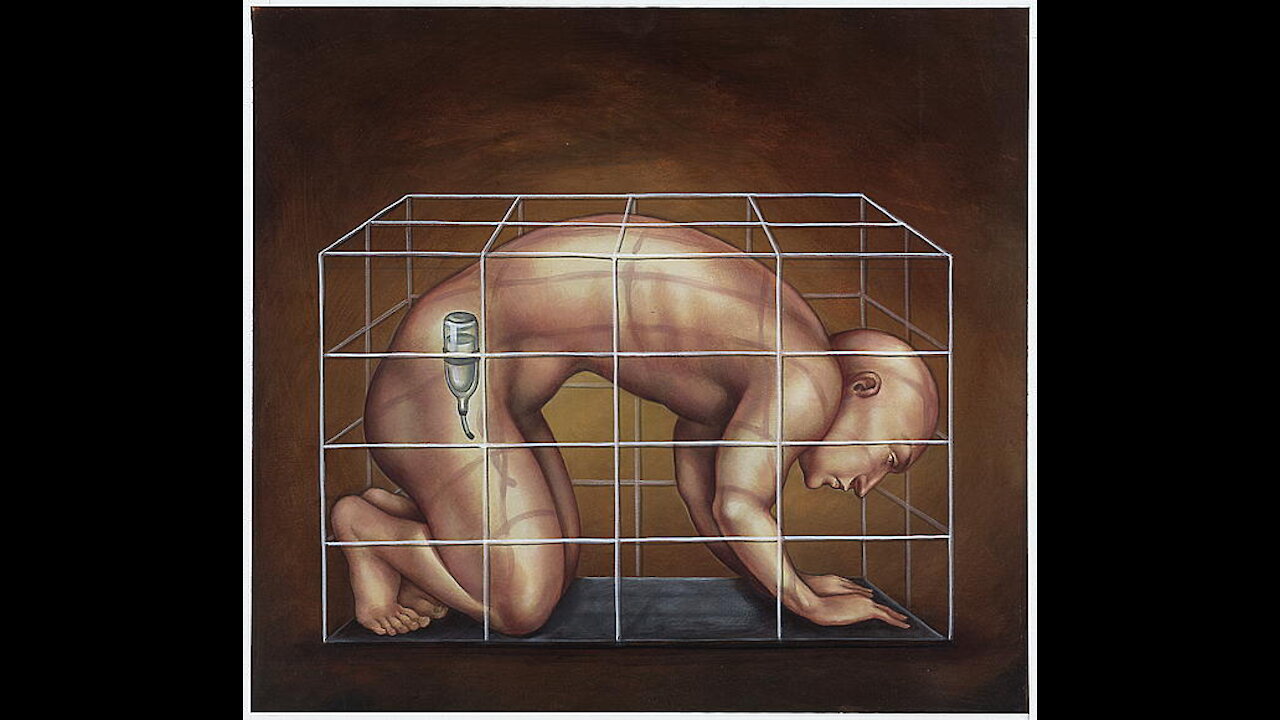
Guinea Pig Kids BBC Documentary - Fauci
BBC documentary that exposes how the city of New York has been forcing HIV-Positive children under its supervision to be used as human guinea pigs in tests for experimental AIDS drug trials.
Transcript for the BBC documentary Guinea Pig Kids
This is a slightly edited version of the complete documentary broadcast on Tuesday, 30 November, 2004, at 1930 GMT on BBC Two in the UK.
Liam Scheff has provided a few comments in brackets. The rest is from the BBC transcript of the film.
The Narrator throughout is Amanda St John.
Speaker: We have freedom in this country and that’s a wonderful thing isn’t it? We have freedom of religion and freedom of speech and that’s one of the cool things about being an American.
Narrator: Battery Park, in the heart of downtown New York. And a hymn to America in the last of the summer sunshine. New York is the richest city, in the richest country in the world. But just a few miles uptown live some of the poorest communities in America.
In the Bronx three grandchildren try to bring their grandmother up to date with the latest fashions. But two people are missing from this picture. Veronica Momodu recently died of AIDS.
[ed - This is the one piece of the film I think is not as accurate as it could be. She didn’t die of ‘Aids’, as in a long, debilating death. She was an African immigrant. Her son had been taken from her by the state, because she did not want him in an AIDS drug trial. I was working with her to appear in the film and tell her story. She was depressed and anxious, and terribly distraught over not seeing her child.
A few weeks before filming, she passed out in her home, again, after months of stress from not being able to see her child, and not knowing where in the city he was. She was brought into the hospital passed out, after having, I was told, a seizure. I believe she was drugged heavily, and with the standard Aids drugs, because she had tested ‘HIV positive’. In any case, three weeks after entering the hospital and starting the drugs, she was dead.]
Narrator: It was left to her mother, Regina, to bring up three granddaughters and a grandson, Garfield, who’s HIV Positive. Veronica and Regina had wanted to have a say in the treatment Garfield received.
But instead the New York authorities insisted Garfield stay on drugs and medicines, which even the other children could see were making him ill.
Nanju [family member]: When he was drinking the medicine sometimes at night, it was in the summer time too, and he would say, ‘mummy I’m cold, I’m cold’ or he would itch his body all over, non-stop.
Catherine [family member]: And every time he said he was cold, my aunt would tell my uncle to put the heat up, he put up the heat a lot of times, but he kept saying he was cold.
Interviewer: Is this why your family decided to stop the medicine?
Nanju: Yeah, my aunt stopped it because he wasn’t feeling comfortable.
Catherine: And he started to get well, but when she went for a check up, they gave him the medicine again without her knowing it.
Interviewer: And did he get sick again?
Catherine and Nanju: Yeah.
Regina Mousa [Grandmother]: I don’t know what type of medicine they were giving. The boy was allergic to sulphur and they give it to him and he’s scratching all over his body and he lost his appetite, he don’t eat and he was getting skinny and skinnier.
Narrator: Convinced that the medicines were making things worse, not better, they turned to their hospital doctor for advice. He made an unexpected offer.
Regina Mousa: My daughter told me, she said when she went to see the doctor and that time it was the child’s appointmentthe man said he would be giving her twenty-five dollars a month if they can put the child on experimental basis.
She said ‘I will think about it’ and she said ‘No’. Then the doctor said ‘You will regret it’.
Narrator: Regina’s daughter took Garfield off all medication. Almost immediately his health improved. Then there was a knock on the door.
Regina Mousa: They came to take the child and they came with police. I think it was three or four policemen.
Narrator: In New York, you don’t need a court order to take a child from its parents. The Administration for Children’s Services, or ACS, has exceptionally strong legal powers to decide what’s best for the city’s kids.
David Lansner [Family Lawyer]: They’re essentially out of control; I’ve had many ACS case workers tell me; ‘we’re ACS, we can do whatever we want’. And they usually get away with it.
Narrator: Garfield simply disappeared into the system; one of twenty-three thousand children placed either with foster parents or in children’s homes.
This Catholic-run home, the Incarnation Children’s Centre in Harlem, is where many HIV children end up if their parents or guardians refuse to medicate them.
For years it was the centre of highly controversial and secretive drug trials on orphans and foster children as young as three months old.
Jacklyn Hoerger [Pediatric Nurse]: At the time it did not occur to me that anything was wrong because we were told by the doctors that these were all steps that were going to happen, to be expected because they were all HIV-positive.
[ed – Jacklyn’s story was part of the initial story on ICC, “The House That AIDS Built,” in a segment called The Nurse’s Story. Hoerger has also been interviewed by Essence Magazine and the New York Post.]
Narrator: Jacklyn Hoerger is a pediatric nurse who worked at Incarnation for five years.
Jacklyn Hoerger: If they were vomiting, if they lost their ability to walk, if they were having diarrhoea, if they were dying; that all of this was because of their HIV infection and to be expected and that we were doing the best we could to save them from that.
Narrator: Jacklyn was completely unaware that she was party to experiments on children.
Jacklyn Hoerger: It didn’t come as my first thought at all to question the medication and since I had worked with pediatric AIDS for many years and had given the medication, I just faithfully gave it as I was told by the doctors.
Narrator: We found documentation listing some of the experiments carried out on HIV children at the home. One was for treating herpes; another involved giving children double doses of the measles vaccine.
And yet others involved whole cocktails of drugs with side-effects admitted by the manufacturers including: severe stomach pain, muscle wastage, organ failure and many more.
Dr. David Rasnick [University of Berkeley]: Side-effect is a euphemism for, for undesired direct effects. The effects of the anti-HIV drugs are quite serious, in fact, in fact if you look at the insert that comes with these drugs you’ll see virtually all of them will have a black box warning label which is the highest, most severe warning that these drugs can have and still be prescribable to human beings before they’re taken off the market. They’re lethal.
Narrator: Three thousand miles west of Manhattan, Dr. David Rasnick is internationally renowned for his work on numerous diseases, including cancer.
Dr. David Rasnick: I’ll scroll that up a little so you can see the years and everything. And it’s Aids cases, deaths and…
Narrator: He’s studied the effects of HIV drugs on patients, particularly children.
Dr. David Rasnick: The young are not completely developed yet; the immune system isn’t completely mature until a person’s in their teens, typically.
Narrator: We asked for his opinion on some of the Incarnation trials.
Dr. David Rasnick: We’re talking about serious, serious side-effects. Didanosine, all by itself is, is a very dangerous drug. Zidovudine is our famous AZT, which has never been shown to be life saving, it also causes severe anemia. Nevirapine is the drug that also causes that Stephen Johnson Syndrome, the flaking of the skin and it’s very, very dangerous and debilitating, it’s horrible and painful and also lethal.
These children are going to be miserable; they’re absolutely going to be miserable. They’re going to resist taking them after a while, they’re going to probably take them when people give it to them, they’re going to suffer so much AZT by itself that they’re going to have cramps, they‘re going to have diarrhoea, they’re not going to want to eat, they’re joints are going to swell up, they’re going to roll around on the ground, you can’t touch them.
And I understand that the Incarnation Centre, they sent them to the hospitals, these children and they cut a hole in their belly and put a feeding tube in their belly and administer the drugs to the children who don’t take these drugs.
Boy: [ed - this is "Sean" from The House that AIDS Built. He is later called "Carlos" by the film producers. Both are aliases, as per his guardian's request.] : My friend, Jolice, she never, never ever liked to take her medicine. So they used to hold her down and force it down her throat. I tell her…
Narrator: This boy spent most of his life at Incarnation. Aged fifteen, after years on drug tests, he has the physique of a ten year-old.
Narrator: He didn’t want to show his face. But he did want to tell the story of what happened to him in the home.
Boy: I did not want to take the medications and I did not want to, you know, do all that stuff.
Interviewer: But they insisted?
Boy: Yeah, if you want to get out of there you have to do what they say or else you’re not going anywhere.
Narrator: His medical records, which we’ve obtained, prove that he was enrolled in drug trials while living at Incarnation. If a child refused to take the medicine, a peg-tube was inserted directly into the stomach; something he warned his friends about.
Boy: And I used to tell her every single day, ‘please take your medicine; you don’t want a tube in your stomach’. But she didn’t listen to me. That’s what she got. And my friend Daniel, he didn’t like to take his medicine either and he got a tube in his stomach.
Narrator: Under Federal rules consent for children to take part in drug trials has to be given by their parent or guardian. But the kids at Incarnation have no independent voice. The body that is their legal guardian, the ACS, is the same body that makes the children available for trials.
Vera Sharav [Alliance for Human Research Protection]: You would not expect too many parents to volunteer their loved children for such experiments. This means that if the researchers want to do the experiment on children, they are going to look for vulnerable children whom they can get. And when you have a city government agency accommodating them; that is the biggest betrayal of those children. They don’t have anyone but the city agency that is their guardian on paper but not in human ways.
Narrator: For over ten years, Vera Sharav has battled almost single-handedly with the New York authorities to come clean over the use of children in drug trials.
Vera Sharav: They tested these very highly experimental drugs, Phase One and Phase Two, why didn’t they provide the children with the current best treatment; that’s the question that we have. Why did they expose them to risk and pain when they were helpless? Would they have done those experiments to their own children? I doubt it.
Narrator: When we spoke to the ACS early in our investigation, they told us that no child was selected for trials without a long process of decision-making.
Vera Sharav: I would absolutely reject the idea that they go through a process. Yes, they go through a process, but it is in, in, on paper only. For example, the city department created a panel, an ethics committee that approved the experiments that were conducted at Incarnation House. There’s only one little pesky detail; the panellists all come from hospitals that conduct the trials, so they all are stakeholders in saying that it was perfectly all right.
Narrator: Most of the children in the trials are from New York’s poorest districts. Many were born to drug addicted mothers. Over ninety-eight percent of children in foster care in the City are black or Latino.
But in New York City, where the ACS was given special powers by former Mayor Rudi Giuliani, even professionals realise they are fighting a losing battle.
Jacklyn Hoerger, the nurse who had once administered the drugs to children at Incarnation, was about to discover just how difficult it really was. She’d decided to add to her existing family by adopting two young girls she’d grown to love at the home.
Jacklyn Hoerger: They were half-sisters and the younger of the two was pretty much immobile; didn’t know how to walk, didn’t know how to play, didn’t speak much, didn’t know how to show her emotions or feeling whatsoever. And her sister was the opposite; she was hyperactive, couldn’t sit for a minute, couldn’t be still for a minute and wouldn’t eat and the younger of the two overate. So it was a complete mess.
I gave them all that I could, on every level. I gave them the good quality food, the rest, the best private schooling they could get, occupational therapy, physical therapy, speech therapy, tutoring. The best psychologists I could find on all levels and I just didn’t seem to be making any headway. And the only thing that was left was the medication that I had been giving them.
Narrator: Jacklyn decided to take the children off the drug regime which Incarnation had insisted upon. The results were almost instantaneous. The older girl began eating properly for the first time.
Jacklyn Hoerger: She would ask for seconds and thirds and it started showing on her body. When we swam at a swim club that we go to she had a swimsuit on about a month or two after I took her off the medication, I just looked at her with those loving mother eyes, just seeing a daughter look beautiful, rounded out, muscular, strong and healthy. It was a wonderful sight.
The younger daughter, I would say, the main change after I took her off the medication, it felt that her nerves became more and more healthy and I taught her how to walk, run, jump on the trampoline, play, ride the bicycle, swim and it was a joy to watch her.
Dirk Hoerger [husband]: I remember the first Christmas when they all got new hats and they sat in the corner all three of them together next to the Christmas Tree in their new hats surrounded with their presents and Ilene had this little shy smile, Olivia beaming from ear to ear and Leah sitting over them.
Daughter [Jacklyn and Dirk’s daughter]: And on Christmas morning, I woke and there was the faintest red on the horizon and so I turned on the light and we all got up and we opened our presents, you know, our stockings, and we started yelling out the window; ‘thank you Santa Claus’. And then Mommy came stomping, stomping down the stairs; ‘how dare you guys, it’s only one o’clock in the morning’.
Narrator: Not long after those Christmas celebrations, there was a visit from the ACS.
Jacklyn Hoerger: It was a Saturday morning and they had come a few times unannounced so when I saw them at the door, I invited them in and they said this is not a happy visit and at that point they told me that they were taking the children away. I was in shock; I couldn’t believe it and we were, it was a home day and they were in their pajamas and…
Narrator: The social worker involved in the case was Demetrius Travis. He was on holiday when a temporary case worker arrived at their door with the ACS.
Demetrius Travis [Social Worker]: The family did not agree with the drugs that were being given to these children who had HIV and as a result of the parents not agreeing with the, the medicinal, I guess, regimen that was being administered to the children when it was learned that that regimen was not being followed the children were taken back into foster care.
Interviewer: Did that decision upset you?
Demetrius Travis: It bothered me yeah, because I can remember how well off these children seemed to be and, and that just wasn’t, that wasn’t just my opinion that was the opinion of this mental health professional who had dealt with these children over a period of, I would say, a year and a half, two years.
Narrator: As a result, Jacklyn was taken to court and convicted of child abuse.
Interviewer: Where are they now?
Jacklyn Hoerger: I don’t know. I’m not allowed to know.
Narrator: Jacklyn’s greatest fear is they’ve been returned to Incarnation Children’s Centre or a similar home in New York where they might be subjected to experimentation.
Bill Perkins [New York City Council]: Well it is shocking that in New York City, experimental drug treatments are being used on children who are in foster care.
Narrator: Even senior politicians in the city have found it impossible to get information about the trials. Bill Perkins is Deputy Majority Leader on New York City Council.
Bill Perkins: We do know that several have passed away during the course of these experiments and we know that there are still some involved and there’s been somewhat of a secrecy about the whole matter, I must say. It has not been easy to get through the bureaucracy as to exactly what this is all about.
Narrator: In a mass grave owned by the Roman Catholic Church close to Manhattan, over a thousand children’s bodies, including some who were enrolled in the trials, lie beneath a tarpaulin. Officially their deaths are recorded only as resulting from ‘natural causes’.
For months, we tried to get answers from those behind the trials – from Columbia Presbyterian Hospital, where many of the tests were devised. From Incarnation Children’s Centre. From the Catholic Church. And from the ACS; the authority ultimately responsible. None would comment.
The drug companies which have supported trials at Incarnation include some of the world’s largest. Among them Britain’s own Glaxo Smith Kline.
They also refused to be interviewed for this program saying only that all trials have stringent standards and are in compliance with local laws and regulations.
In Washington, officials at the National Institutes of Health insist that any participation of children in drug trials should be voluntary in every sense.
Lauren Wood [National Institutes of Health]: We let parents know that participation is always voluntary; that they can stop participating in a trial at any time. Many parents need to have that reinforced, that participation is voluntary. We also get the assent of the child, when it’s appropriate.
Narrator: But what if that child is in the care of New York City authorities which have volunteered it for the trials in the first place?
David Lansner [Family Lawyer]: New York Law hasn’t made clear where the boundaries are between the parent’s right to provide and control the treatment for the child and the ACS’s right. And as a result, the parent loses out and the child loses out because ACS simply says; ‘we’re going to make all the decisions’.
Narrator: In two thousand and two, the trials at Incarnation were suddenly halted. Attempts to uncover why exactly meet either with silence…or a call to the NYPD to have us removed.
During the making of this program the Food and Drugs Administration announced an investigation into the trials, which we have discovered are continuing at at least six other locations in New York City.
Meanwhile, Regina Mousa from the Bronx is now in contact with her grandson, Garfield. She’s won a court order granting her visitation rights.
This is her grandson’s new foster home in the Bronx. The boy was hungry and Regina had brought food. Although the house was in poor condition, it was better than his previous one where the foster mother had allegedly beaten him.
Garfield’s new foster mother receives six thousand dollars every month for him and three others.
What makes her a better guardian in the eyes of the authorities is that she gives the medicine demanded by the ACS and Regina refuses.
Regina Mousa: I want to get him back. I want to get him back. Because I don’t want my child to remain in experimental basis. Not my own grandson. Because we love him.
Narrator: Jacklyn Hoerger has had no news of the two little girls she was adopting since that day when the ACS arrived on her doorstep.
Jacklyn Hoerger: We weren’t given any rights whatsoever. I even wrote a letter to the social worker appealing to her humanity, to just let us know something. But I don’t know anything.
Interviewer: Did you ever say to the nurses or the doctors that you felt the medicine was wrong?
Carlos: I try; I just try to be me. I don’t bother anybody. People do things for, like I said, a reason; good or bad, we have to forgive them for what they do.
-
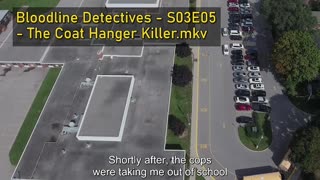 18:12:15
18:12:15
New World Order: Blueprint Of Madmen
2 months agoThe People's Stand: Challenging the Elite's World Vision
4.86K -
 4:34
4:34
The Daily Caller
3 years agoJesse Watters mocks Dr. Fauci documentary
63.9K67 -
 4:07
4:07
William Hall
3 years agoThe Fauci Movie/Documentary Is A JOKE
60711 -
 5:17
5:17
Benny Johnson
3 years agoDisney's Fauci Documentary BLOWS UP In Their Face!
2.05K33 -
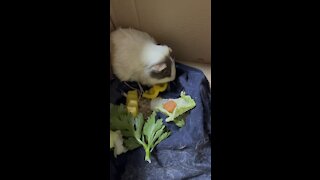 0:20
0:20
The Guinea Pig Channel
3 years agoGuinea Pig
110 -
 0:28
0:28
The Guinea Pig Channel
4 years agoGuinea Pig
911 -
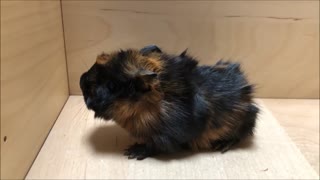 0:42
0:42
The Guinea Pig Channel
3 years agoGuinea Pig Baby
951 -
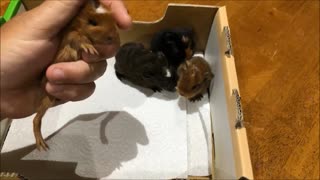 1:03
1:03
The Guinea Pig Channel
3 years ago $0.01 earnedBaby Guinea Pig
42 -
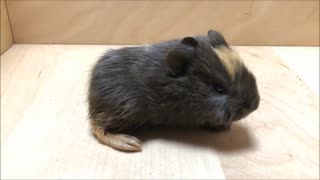 0:59
0:59
The Guinea Pig Channel
4 years agoGuinea Pig Baby
48 -
 0:32
0:32
All Creatures Great and Small Channel
4 years ago $0.02 earnedBaby Guinea Pig
60